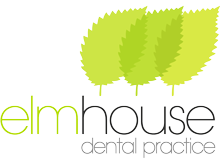Elm House tips on avoiding gum disease
Gum disease is caused by plaque, a removable film of bacteria that lives in everybody’s mouth.
There are many types of bacteria that can make up plaque, but at its very simplest we can separate them into gum-friendly and not friendly.
Gum-friendly plaque is aerobic, it uses oxygen to survive and its by-products do not harm gums as much. If plaque is left undisturbed around your gums it will change to include more unfriendly anaerobic bacteria.
These do not need oxygen to survive but importantly your gums do not like their by products at all.
Gums faced with anaerobic bacteria try to fight against them by filling with more blood, swelling and separating away from the teeth. Consequently they bleed when brushed or flossed. If your gums bleed when you do either of these you do have gum disease. Gum disease is bad and can cause the loss of teeth if left long enough – but it is treatable.
If there is no plaque the inflammation will go away. It is not possible to remove all the plaque but anaerobic bacteria do not like being disturbed! This means that if the plaque is disturbed by cleaning at will remain aerobic and gum-friendly.
BUT cleaning means brushing AND using something to clean in-between the teeth. Brushing on its own will leave enough anaerobic plaque in-between the teeth to leave these bits inflamed. To clean in-between teeth use one or more of the following: interdental sticks, interdental brushes or floss.
Choose your favourite method. The successful one is the one you do not put off to another day.
Visiting one of our hygienists regularly is also important. If your teeth are super smooth less plaque will accumulate. The build up of calculus (or tartar) increases the surface area hugely to help the plaque adhere.
Calculus is calcium that has decided to solidify on your teeth and is not removable with a brush.
To summarise, you can help avoid gum disease if you:
- Brush daily
- Floss daily (or one of the other techniques)
- Rinse with antibacterial mouthwash like Corsodyl
- Visit the hygienist regularly
- Smoking is also bad for gums – stopping smoking will also help prevent gum disease.


